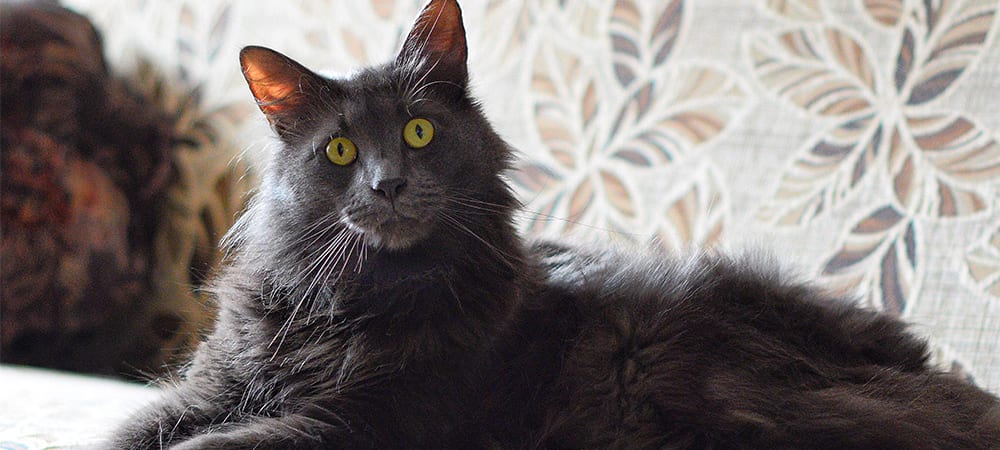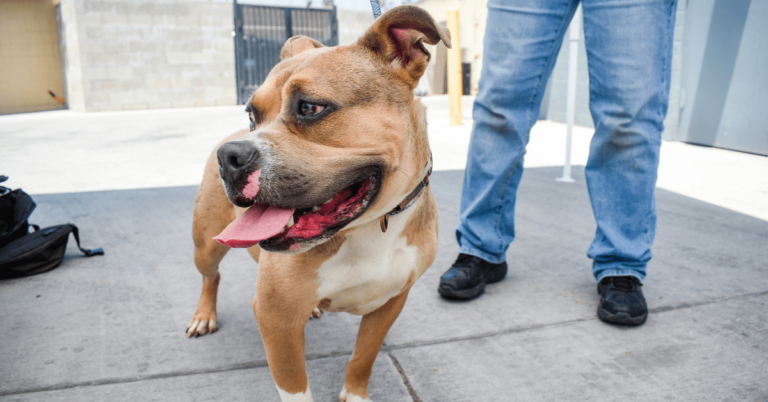Symptoms of Hyperthyroidism in Cats


Hyperthyroidism is a common condition for felines and is not always easy for pet owners to recognize. Cats are known for their stoicism and it sometimes can be hard to tell when they aren’t feeling well. However, if you notice that your cat is losing weight but eating and drinking a lot, this could be a telltale sign. There are other symptoms, which we’ll get to later, but first, here’s a rundown on hyperthyroidism and how it manifests in cats.
Hyperthyroidism is when the thyroid gland in a cat’s neck is enlarged and produces an excess amount of thyroid hormones. The thyroid affects most of the other organs in a cat’s body and their metabolic rate, therefore throwing off the balance of thyroid hormones can cause secondary issues as well. Hyperthyroid symptoms in cats are usually seen in middle-aged and older cats aged 10 years and over. It can affect cats of any breed. The main causes of hyperthyroidism are unknown, but it can be caused by malignant tumors.
Symptoms of Hyperthyroidism in Cats
Not all cats will show symptoms of hyperthyroidism. For those that do, they may experience some of the following:
- Weight loss
- Increased appetite
- Excessive drinking
- Increased urination
- Excessive energy
- Panting
- Diarrhea
- Shedding
- Unkempt coat
- Vomiting
The most common symptoms of hyperthyroidism in cats is weight loss, increased appetite, and excessive drinking and urinating. These symptoms can be subtle at first but will continue to grow in intensity without treatment as time passes. It is not common, but in some cases, cats with hyperthyroidism will show symptoms of lethargy, general weakness, and loss of appetite.
What to Do If You See Symptoms of Hyperthyroidism in Your Cat
If left untreated, symptoms will progress and other organs may be damaged. Contact your regular vet and make an appointment as soon as possible if you think your kitty’s at risk. Since hyperthyroidism has similar symptoms of other cat diseases, a veterinarian will need to run a battery of tests to determine what ailment they have.
First, a vet will do a physical examination and feel around the cat’s neck and looking for enlargement of the thyroid gland. Next, they will do a full blood-chemistry panel to analyze the levels of thyroid hormones T3 and T4 in the bloodstream. In rare cases, the T4 hormone levels will appear normal. If the vet still suspects the thyroid is the problem, they will conduct additional tests. A urinalysis will give the vet some information about the condition of the other organs in a cat’s body that may be affected by the hyperthyroidism.
Symptoms of hyperthyroidism in cats are usually observed gradually and are not a cause to visit an emergency vet.
Treatment Options
Feline hyperthyroidism is treated in four ways:
- Medication
- Radioactive iodine therapy
- Surgery
- Dietary therapy
Medication does not cure cat hyperthyroidism but manages symptoms long-term. Medication is given in the form of an oral pill twice daily or a topical gel. The medication reduces the number of thyroid hormones that are produced and is an effective treatment that will get your cat back on track to living life normally. The cat’s blood will need to be tested periodically to ensure the medication is working effectively.
Radioactive iodine therapy is a choice treatment for hyperthyroidism in cats. The radioactive iodine is injected into the cat’s bloodstream where it is absorbed by the thyroid. The radioactive components cause the abnormal thyroid tissues to die off, leaving only normal tissues behind. Cats who receive this treatment often show normal thyroid levels after a week or two of therapy. Because of the radioactive substances that need to be handled, this procedure must be done at a specially licensed facility. The cat will stay at the facility until the radioactivity levels have been reduced. Lengthy stays at facilities can make this procedure on the costly side. Rarely, some cats will experience hypothyroidism, where the thyroid gland doesn’t produce enough hormones. These cats will need medication to supplement their thyroid hormones.
During surgery, the thyroid glands are removed. Surgery is very effective at curing hyperthyroidism in cats, and symptoms will subside, returning your cat’s weight and coat to normal. However, surgery is invasive compared to other methods and is rarely used as a treatment option.
Dietary therapy is an option that is usually chosen when a cat has medical conditions that make other treatment routes impossible. The diet limits the amount of iodine intake, which helps reduce thyroid hormone production. More studies need to be conducted for this therapy as there is controversy about the long-term effects on a cat’s health with iodine restriction.
Prognosis
In most cases, cats with hyperthyroidism in most cases are easily treated and can live their lives normally. In some cases, secondary problems with other organs can occur, which will complicate the prognosis. It is best to seek a veterinary consultation as soon as symptoms of hyperthyroidism in your cat are observed. Never self-diagnose your furry friend off the internet. Leave it to the experts to give you a complete picture of your cat’s health.
Visit our resource center for more info on how to keep your pet healthy and happy.



